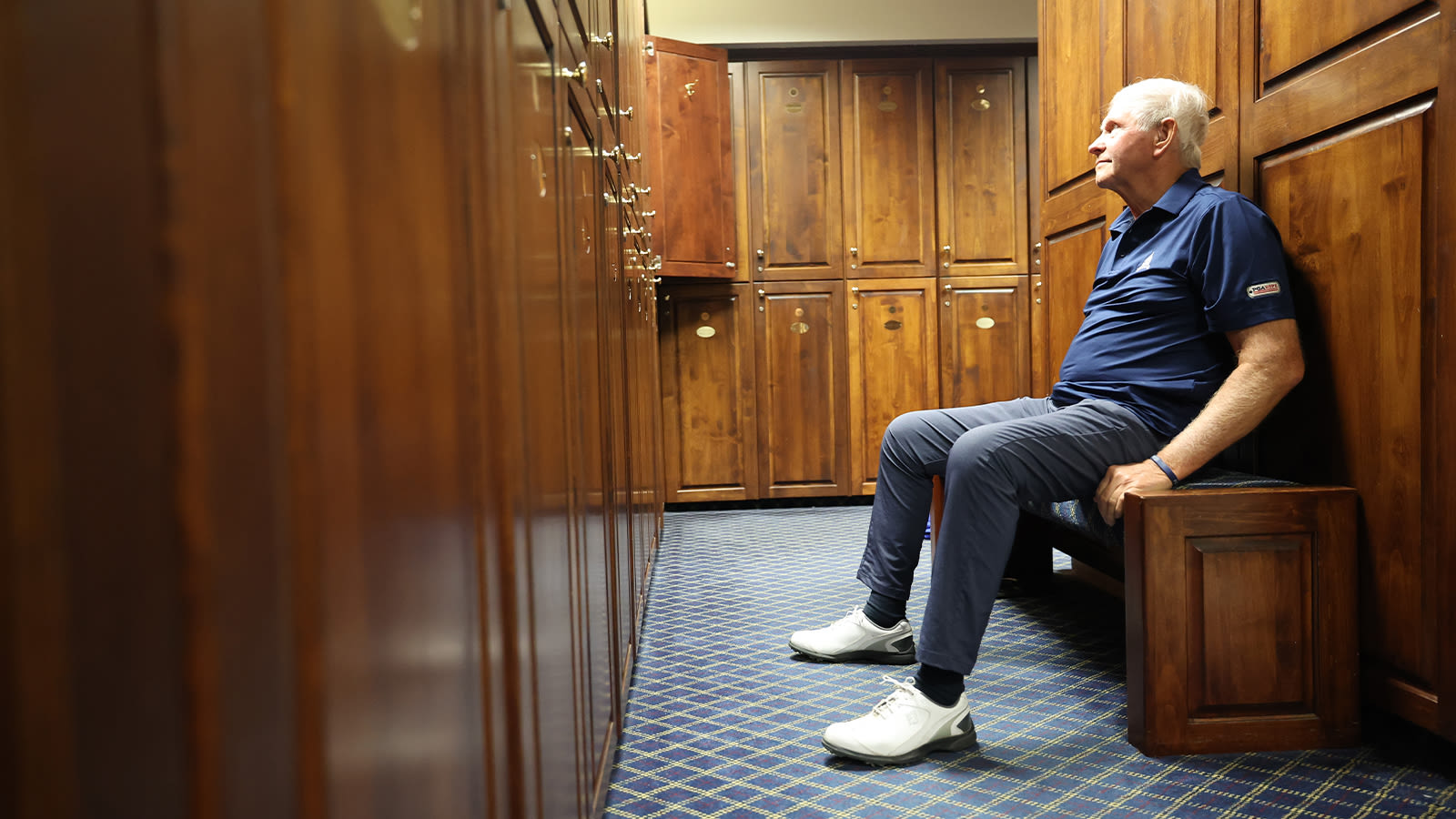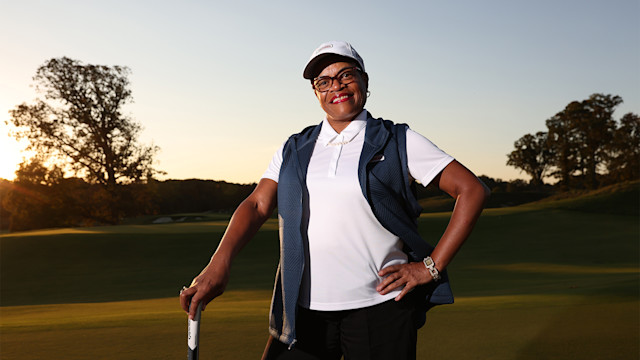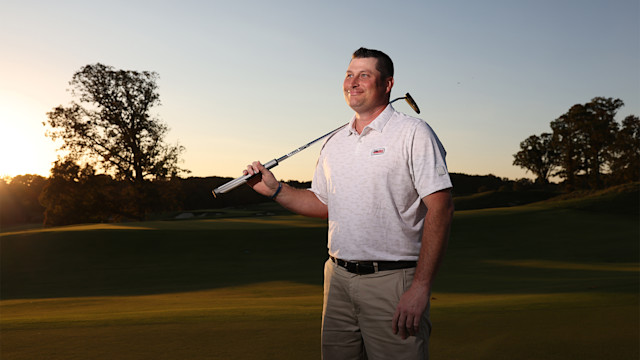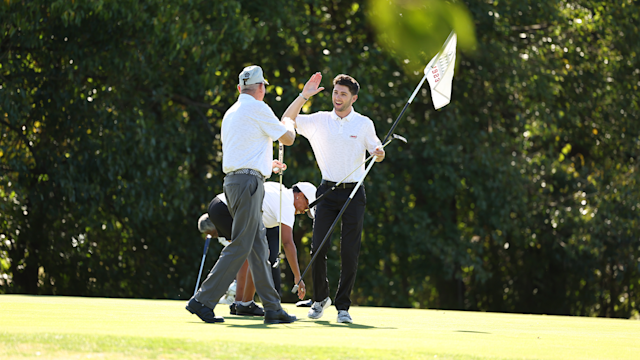Game Changers
Mission Complete: Veteran Randall Halsey Discovered What He was Looking for in the Game of Golf
By Jay Coffin
Published on

Randall Halsey has finally discovered something he’s been seeking for more than a half century.
Gratitude. Comfort. A sense of belonging.
He has golf to thank for helping him complete the mission.
“It feels to me like some sort of atonement for what I didn’t feel when I came home from Vietnam,” he says slowly.
The retired Army Sergeant is one of 20 Veterans selected to participate in PGA HOPE National Golf and Wellness Week in Washington, D.C., hosted by Congressional Country Club. PGA HOPE (Helping Our Patriots Everywhere) is a flagship military program of PGA REACH, the charitable foundation of the PGA of America. PGA HOPE introduces golf to Veterans to enhance their physical, mental, social and emotional well-being.
Halsey, 75, grew up near Kansas City and dabbled in golf during his childhood although it was never a priority. Same for when he returned from the Vietnam War in 1971 and eventually married wife Marla and had daughter Nicole and son Allen, now both in their 40s. It wasn’t until he retired from his own corporate special events business four years ago when Halsey became obsessed with the game and found a group of Veterans to share it with. Now he plays four times a week.
“It’s never good,” he says about his own game, “but I really, really like it.”
Golf has served as the perfect antidote to his painful past. All these years later, the agony and disappointment is still etched on his face.
“I should preface anything that I say by the fact that thinking about it and talking about it is still emotional for me,” Halsey says. “We did a dirty, nasty job and we believed it was for the betterment of the country, that it was the right thing to do and that it was our responsibility to do it.
“And when we returned, I didn’t expect a hero’s welcome, I don’t really know what I expected, but I didn’t expect what we received. We were spit on, we were called baby killers. We were being vilified by extension because the war was unpopular. It wasn’t what I anticipated it to be.”
Halsey nearly missed being drafted. He was in college in 1969, but President Richard Nixon ended deferment for those going to school and all of their names were entered into a draft lottery where one name was picked each day out of a large glass container that held 366 blue plastic balls containing the birthdate of men between ages 18 and 26.
On May 5, Halsey’s 364 was selected.
“As I grow older I’m very proud of the fact that I did serve,” Halsey said of his 14-month stint as an Infantryman in Vietnam, which began in September 1969. But that doesn’t mean he agreed with the way it went down, including how he was vilified upon his return home.
To this day there are things that bring Halsey severe discomfort. He avoids walking across open parking lots. This interview is being conducted in the middle of a midsized hotel conference room with surrounding windows when Halsey discloses that he doesn’t like being near open windows and prefers to sit with his back against the wall. The suggestion is made to move to a more comfortable position and Halsey politely declines. He says he needs to continue to work through his PTSD, which is one reason why he obtained a neuropsychology degree from the University of Missouri.
“I don’t act on it and it doesn’t impede my everyday life, but it’s always there and I always think about it,” he says. “That’s part of adapting over your lifetime. You realize that it’s silly. Nobody is going to bother you. I realize that. But it’s still there.”
Being in open spaces don’t bother Halsey as much on the golf course, he says, because he’s mostly in the comfortable company of fellow Veterans, like those in the PGA HOPE program, which he was introduced to at the Kansas City Golf Show four years ago.
Halsey turned up for his first lesson of the six-week program in early 2019 and none other than Tom Watson was in attendance. The eight-time major champion helped teach that lesson, had dinner with the Veterans afterward and took pictures with anyone who wanted one. Halsey has that photo displayed proudly on his phone.
“How do you say no to that,” Halsey asks. “It led credibility to the program. I’ve been a proponent of it ever since.”
The Ambassador event in Washington was another great experience for Halsey, who admitted that he wasn’t sure what to expect. His wedge game was on point during a clinic at Congressional, he hits the ball way better than he admits and he’s pretty good with the putter in his hands.
Mike Jaborek, a 39-year-old retired Army Sergeant (2003-08), was paired with Halsey in a nine-hole scramble event earlier in the week. Although they had never met, the two bonded over a love for Kansas City barbeque and when Jaborek spotted a yacht in the Potomac River he asked Halsey what sort of corporate event he’d plan there, like he did for most of his adult life. Halsey’s eyes lit up, just as they did moments later on the seventh green when he drained a 25-footer for birdie to keep his team ahead in their vaunted match.
“Randy is an amazing man,” Jaborek said. “He’s a sweet, mild-mannered, humble man.”
A humble man who still toils with difficulties from a war he fought in for a country that never fully appreciated his sacrifice. Those feelings of sadness, disappointment and betrayal are why cherished time on the golf course is precisely what he needs at this point in his heroic life.
“He’s a national treasure that unfortunately his generation didn’t realize,” Jaborek says. “But they are not neglected. They’re now brought in. It’s why I love seeing him out here with us. You can’t change the past, but at least now we have a chance to try to make it right.”
Learn more about PGA HOPE Programs HERE.


